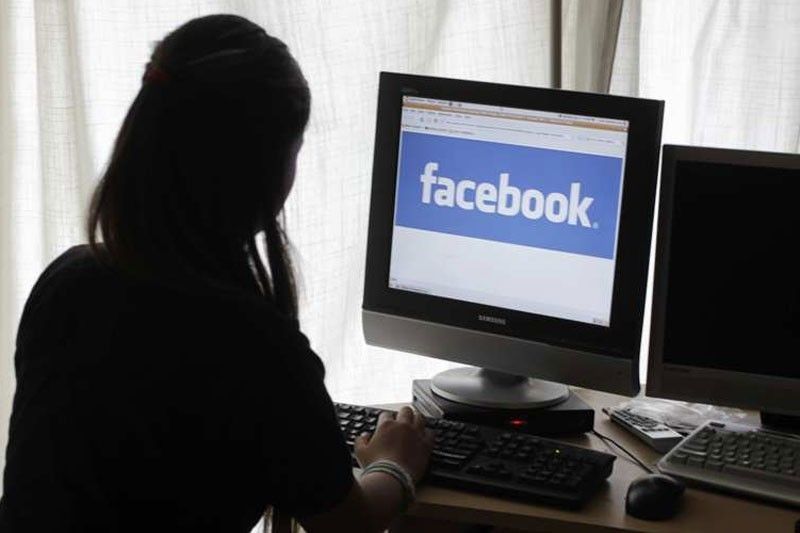Facebook: Under fire worldwide, bullish in Philippines

Yearender
MANILA, Philippines — Despite a tumultuous year marked by privacy concerns and criticisms worldwide, social media company Facebook continued to perform well – and expects to still do so next year – in the Philippine market.
Facebook Philippines country director John Rubio said the company foresees four consumer communications trends to intensify in 2019: multi-screening consumers, videos, stories and messaging.
“The shift to mobile is particularly pronounced in the Philippines,” he told The STAR. “On a daily basis, Filipinos spend three hours and 57 minutes dedicated to social media use. Sixty-two million of the Philippine population use mobile devices to access social networks.”
Rubio was citing the 2018 Global Digital report released in January, which revealed that Filipinos spend the most time on social media worldwide.
The report, conducted by creative agency We Are Social and social media management platform, also showed that Facebook remains the most popular social media platform in the country, with almost all of the 67 million Filipinos with internet access having their own accounts.
Facebook Messenger was also seen as the most popular messaging application in the country, surpassing competitors such as Viber and Whats App.
Data breach
Despite its continued rise in some of its markets, however, 2018 was also seen as the most challenging year for the social media giant.
In March, Facebook found itself in the middle of a scandal after a whistle-blower revealed that British consultancy firm Cambridge Analytica illegally harvested data of over 70 million users and used it for political purposes.
The breach affected 1.18 million Filipino users, prompting the National Privacy Commission (NPC) to direct Facebook chief executive officer Mark Zuckerberg to submit information on the matter.
It said the investigation, which is still ongoing, is for possible violation of the data privacy act.
Various investigations were also conducted against Facebook in other countries, particularly in the United States, where Facebook has drawn criticism over the platform’s role in supposed interference in the 2016 elections.
Months later, another security breach hit the company, affecting some 30 million users worldwide in September.
The incident involved a vulnerability in a code that enabled attackers to steal Facebook access tokens – the equivalent of digital keys that keep people logged in to platform. Using the tokens, attackers were able to take over people’s accounts and access personal information.
Some 90 million users were logged out of their accounts as a result of the incident.
Facebook also issued an apology after it discovered a problem in its system that exposed millions of user photos to developers.
More recently, the company went on the defensive after The New York Times detailed in a report privacy concerns regarding the disclosure of personal data of users to Facebook’s partners.
Among the allegations were the supposed access to the users’ private messages given to some of the companies.
Ime Archibong, Facebook’s vice president of product partnerships, confirmed that private messages were made accessible to the partners, but maintained that users were made aware of it and had given their consent.
Fake news
Facebook also drew criticisms from the Philippine government this year, particularly when it launched a fact-checking initiative in the country in April.
Government officials and supporters criticized the move to tap Rappler and Vera Files for the project, citing their supposed critical stance against the government.
The company, however, noted that the two media organizations are the only Philippine-based organizations that are signatory to Poynter’s International Fact-Checking Network Code of Principles, which it has partnered with for the project.
It said other media organizations are welcome to be part of the project, which it has expanded to include not just links but also videos and photos shared by users.
During a community standards forum in Singapore, company executives touted efforts to combat the proliferation of fake news on the social media platform.
Facebook’s global head of policy management Monika Bickert, however, clarified that they do not have a policy on taking down false content, saying it would be difficult to determine what is true or false in many cases.
Instead, those flagged as false were “downranked,” lessening their visibility on the news feed. Suggested articles that provide additional context and background on the matter also appear next to the questionable article.
Spam network
Facebook strengthened its efforts against spam networks, taking down at least 95 pages and 39 accounts discovered to have been making money by taking advantage of Filipino users.
Facebook said the Philippine accounts contained political and entertainment content and were removed “for encouraging people to visit low quality websites that contain little substantive content and are full of disruptive ads.”
Pages taken down include those that target supporters of President Duterte as well as accounts using names and images of popular celebrities.
In its community standards report released in November, Facebook said over three billion spammy content were removed from the platform between January and September. Over 2.1 billion fake accounts were also removed during that period.
Digital literacy
Facebook also launched various digital media literacy programs in the country, including through a partnership with telecommunications company Globe to promote responsible digital citizenship among Filipino teachers and students.
It also partnered with the Overseas Workers Welfare Administration to provide overseas Filipino workers and their families access to digital literacy and small business training programs.
- Latest
- Trending
































